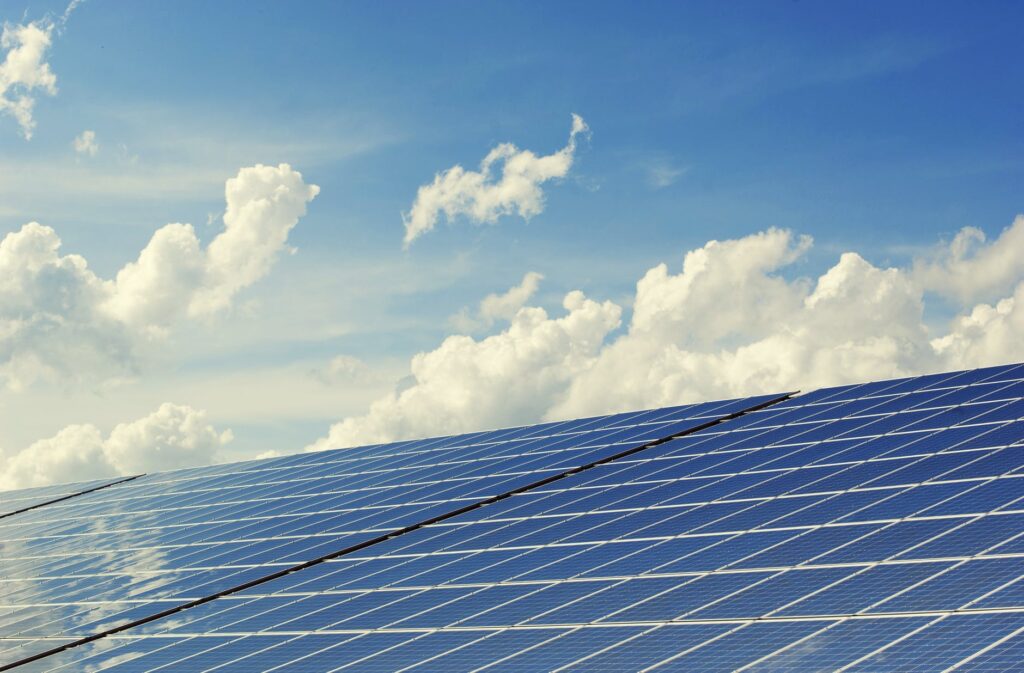Representational image. Credit: Canva
As the world increasingly turns towards sustainable and renewable energy sources, the sun-drenched landscapes of Mali present a promising frontier for solar investments. Positioned in West Africa, Mali boasts abundant sunlight throughout the year, making it an ideal candidate for harnessing solar power. The confluence of favorable geographical conditions, a burgeoning demand for energy, and a growing commitment to sustainability creates a compelling narrative for investors eyeing the solar markets in this African nation.
Mali’s geographical location near the equator ensures consistent sunlight, offering a substantial solar energy potential waiting to be harnessed. The country experiences an average of over 3,000 hours of sunlight annually, making it an attractive destination for solar projects. The vast expanses of uninhabited land provide ample space for the development of large-scale solar installations, further enhancing Mali’s appeal for investors in the solar sector. The cumulative installed solar capacity in the country is close to 70 MW by 2023.
The government has recognized the pivotal role that solar energy can play in meeting the nation’s increasing energy demands while simultaneously reducing reliance on traditional fossil fuels. The National Directorate of Renewable Energy and Energy Efficiency has been actively promoting renewable energy projects, with a particular emphasis on solar. The regulatory framework is evolving to create an investor-friendly environment, with incentives such as tax breaks and favorable tariff structures for solar energy projects.
Emerging Business Trends:
Off-Grid Solar Solutions:
The rural and remote areas of Mali, where access to the conventional power grid is limited, present a significant opportunity for off-grid solar solutions. Companies specializing in decentralized solar systems are emerging to cater to the energy needs of these underserved communities. These solutions not only provide electricity but also contribute to socio-economic development by powering schools, healthcare facilities, and small businesses.
Mini-Grid Development:
Mini-grids, which are localized, self-sufficient electricity networks, are gaining traction in Mali. These grids can power entire communities, offering a reliable and sustainable energy source. Investors are exploring opportunities to develop mini-grids, tapping into the potential of serving areas where extending the national grid may not be economically viable.
Investment in Utility-Scale Solar Projects:
Utility-scale solar projects are becoming increasingly viable in Mali. Investors are showing interest in large-scale solar farms that can contribute significantly to the national grid’s capacity. These projects often involve international collaborations, attracting foreign direct investment and fostering technology transfer.
Solar-Powered Agriculture:
Mali’s predominantly agrarian economy can benefit from solar-powered solutions. Solar pumps for irrigation, solar dryers for crops, and other innovations are gaining popularity, offering sustainable and cost-effective alternatives for the agricultural sector. Investors keen on the intersection of solar energy and agriculture are exploring ventures that can contribute to both sectors’ growth.
Challenges and Mitigation Strategies:
While the prospects for solar investments in Mali are promising, challenges persist. Issues such as land tenure, regulatory uncertainties, and the need for skilled labor in the renewable energy sector can pose hurdles. However, proactive collaboration between the government, investors, and local communities can help address these challenges. Clear and transparent regulatory frameworks, community engagement, and capacity-building initiatives are essential components of a sustainable approach.
Conclusion:
Investing in the sunshine-rich landscape of Mali offers a unique opportunity to be at the forefront of Africa’s solar revolution. The convergence of abundant sunlight, government support, and emerging business trends positions Mali as a strategic hub for solar investments. As the country strives for energy security and sustainability, investors have the chance to not only capitalize on a growing market but also contribute to the socio-economic development of Mali. The future of solar markets in Mali is undoubtedly bright, and those who seize the opportunity stand to play a crucial role in shaping the nation’s energy landscape for generations to come.
Like this:
Like Loading…
Related
Source link : https://solarquarter.com/2023/11/24/investing-in-sunshine-the-future-of-solar-markets-in-mali-and-emerging-business-trends/
Author :
Publish date : 2023-11-24 08:00:00
Copyright for syndicated content belongs to the linked Source.
